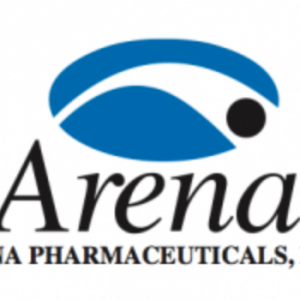Arena Announces Encouraging MS-related Results from Autoimmune Therapy Trial
Written by |

 Arena Pharmaceuticals, Inc. released the first results from its phase 1b trial that for the evaluation of an oral drug candidate called APD334 for the treatment of autoimmune diseases, such as multiple sclerosis (MS). The multiple ascending dose clinical trial demonstrated encouraging findings about the drug, which is designed to target the sphingosine 1-phosphate subtype 1 (S1P1) receptor.
Arena Pharmaceuticals, Inc. released the first results from its phase 1b trial that for the evaluation of an oral drug candidate called APD334 for the treatment of autoimmune diseases, such as multiple sclerosis (MS). The multiple ascending dose clinical trial demonstrated encouraging findings about the drug, which is designed to target the sphingosine 1-phosphate subtype 1 (S1P1) receptor.
The scientists analyzing the drug observed a dose-dependent effect on lymphocyte count lowering in blood, with mean decreases from baseline of up to 69%, due to APD334, within the phase 1b, as announced by the company in a press release. On average, lymphocyte was registered as recovered to baseline a week after the conclusion of dosing.
“Lymphocyte lowering at the level demonstrated in this trial has been shown to correlate with clinical efficacy in Phase 2 and Phase 3 trials of other S1P1 modulators in multiple sclerosis, psoriasis and ulcerative colitis,” explained the Senior Vice President and Chief Medical Officer of Arena, William R. Shanahan, M.D. “The results of this trial support investigation of the efficacy and safety of APD334 in patients with autoimmune diseases.
[adrotate group=”4″]
In addition, no significant safety findings worth noting regarding heart rate or rhythm, pulmonary function, or elevations in liver enzymes were registered. The adverse events related to the treatment most commonly noted were mild or moderate contact dermatitis, headache, constipation and diarrhea, despite the fact that none of them were clearly attributed to the drug, and there were no discontinuations for adverse events nor serious adverse events observed.
The purpose of the randomized, double-blind, placebo-controlled phase 1b clinical trial was to assess the safety, tolerability, pharmacodynamics and pharmacokinetics of multiple-ascending doses of APD334. The study was conducted in five different dosing cohorts, which comprised a total of 50 healthy participants, who were administrated with APD334, as well as 10 other who received placebo during a 21-day period.
“Based on these impressive results, we plan to expedite APD334 into Phase 2 clinical trials for ulcerative colitis and Crohn’s disease,” stated Jack Lief, Arena’s President and Chief Executive Officer. “The advancement of this promising drug candidate further demonstrates Arena’s focused expertise in discovering and developing innovative drug candidates targeting G protein-coupled receptors that have the potential to improve health,” he added.


